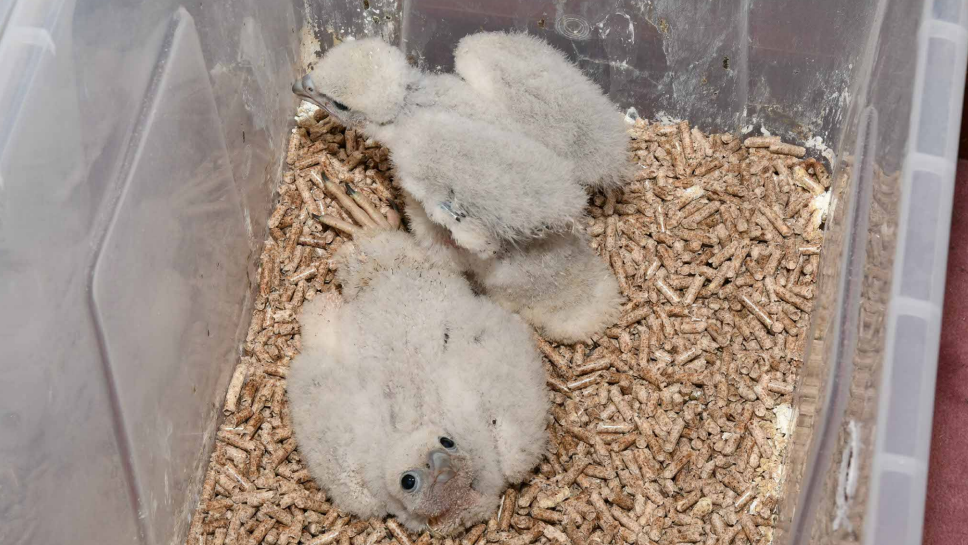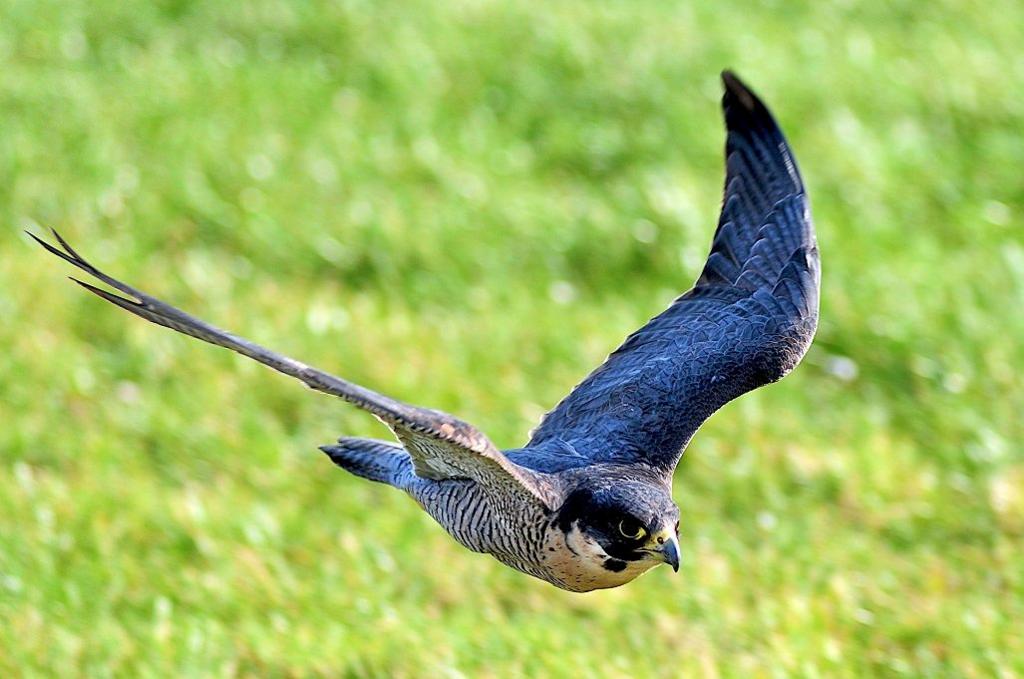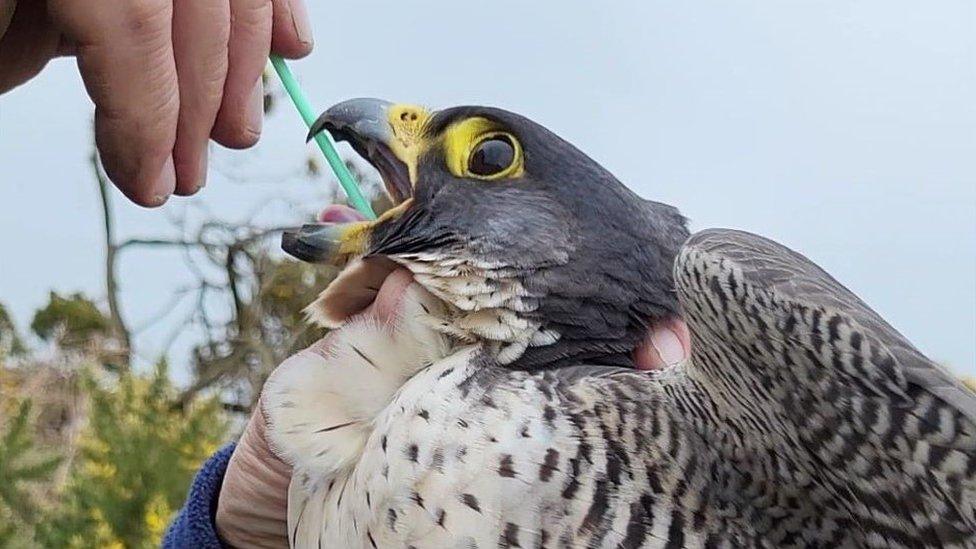Nest raider ordered to pay £27,000 after peregrine falcon thefts

Two peregrine falcon chicks which were found at Lewis Hall's father's home near Berwick
- Published
A man convicted of illegally selling protected birds of prey is to pay back more than £27,000 from his profits.
Lewis Hall earned around £110,000 from the sale of prized peregrine falcon chicks to sheikhs in the Middle East.
DNA was used to help identify birds found at his father's home, near the village of Lamberton in the Scottish Borders, as being stolen from nearby nests.
Prosecutor Sineidin Corrins said: "The sale of peregrine falcons has become an extremely lucrative business."

Lewis Hall had previously admitted being involved in the illegal trade of peregrine falcons
Hall pled guilty last year to being involved in the illegal trade of heavily protected peregrine falcons during 2020 and 2021.
The 24-year-old was sentenced to 150 hours of unpaid work.
A proceeds of crime action was raised against Hall. At Selkirk Sheriff Court he was ordered to pay £27,182, based upon the amount the court believed was available.
Sineidin Corrins, deputy procurator fiscal at the Crown Office and Procurator Fiscal Service, said: "Lewis Hall took advantage for his own financial gain and to the detriment of the wild peregrine falcon population in the South of Scotland.
“However, even after a conviction was secured in this matter, the Crown commenced proceeds of crime action to ensure the funds Hall obtained illegally were pursued.
“Prosecution of those involved in financial crime does not stop at criminal conviction and sentencing."

Wild peregrine falcons from Scotland are highly prized for racing in the Middle East
Investigations identified that a total of 22 peregrine falcon chicks and eggs had been taken from protected nests in Berwickshire.
Wildlife officers believed the birds were being raised and then sold on for thousands of pounds to wealthy clients for racing in the Middle East.
When police raided the rural home of the Halls in May 2021 they found seven chicks and two eggs, with DNA being used to identify that they had come from nearby wild nests.
Detective Constable Steven Irvine, who led the initial investigation, said: "If we had allowed this practice to continue it would likely have wiped out the peregrine population in the south of Scotland."
Related topics
- Published12 February 2024
